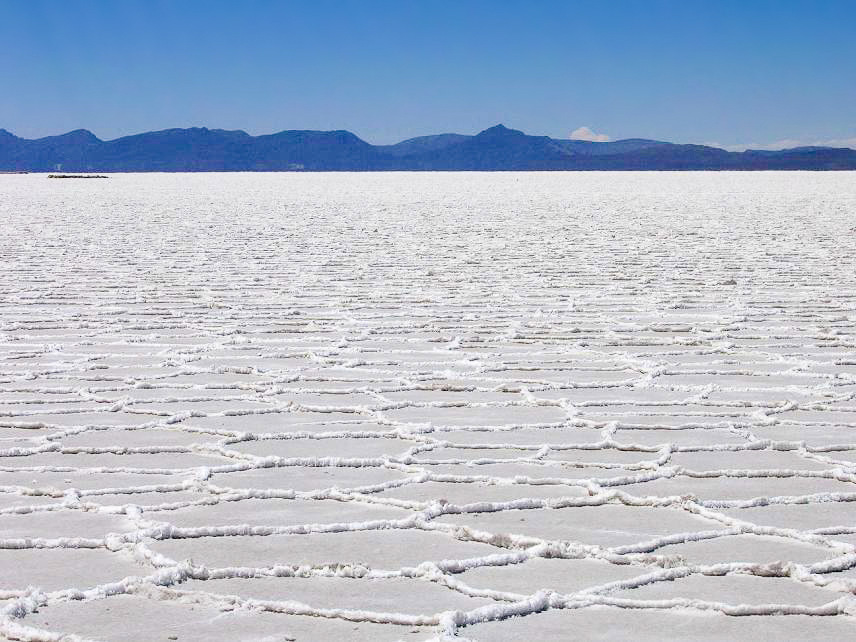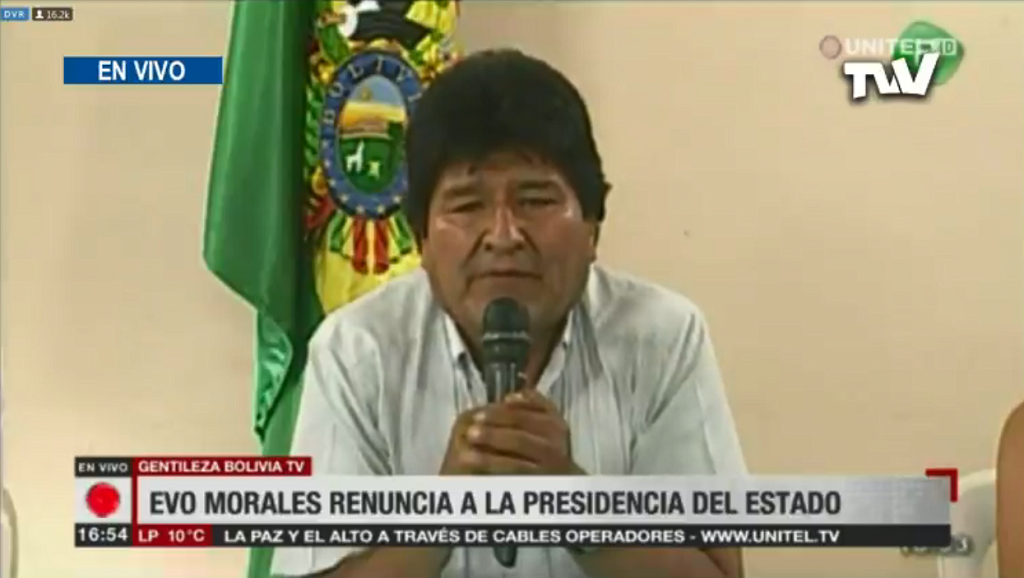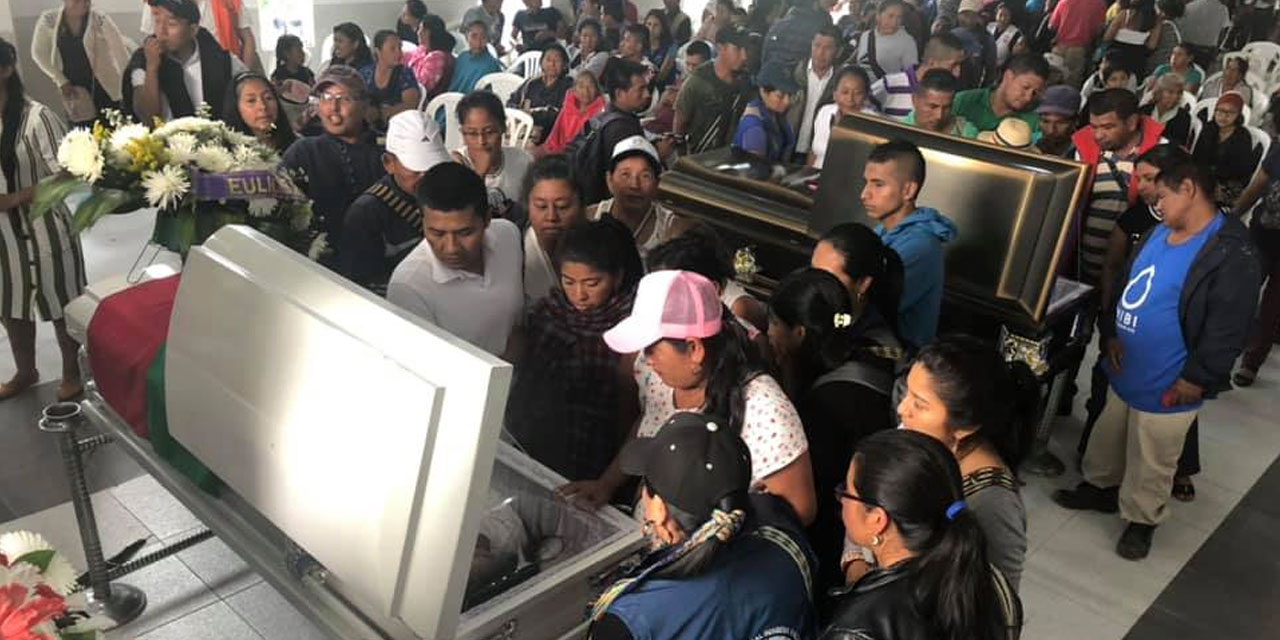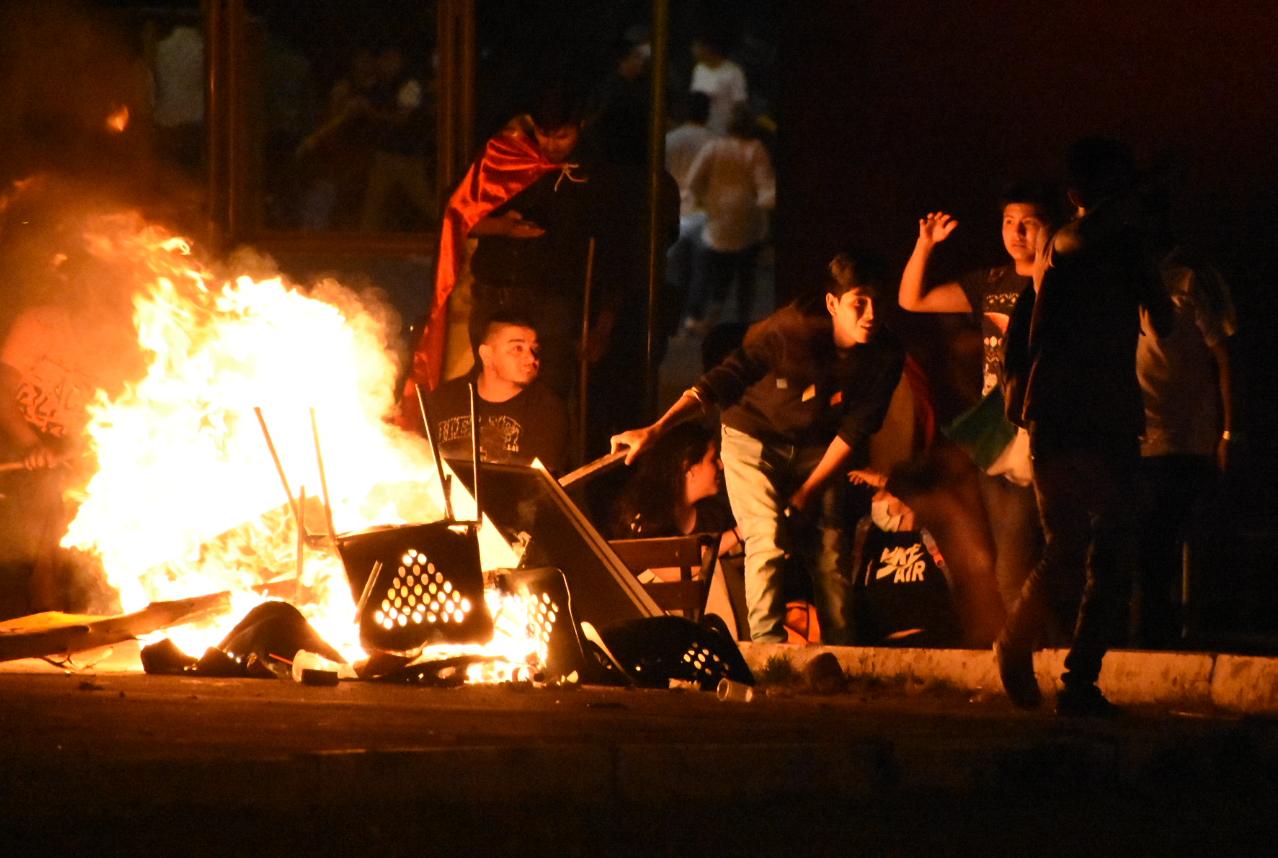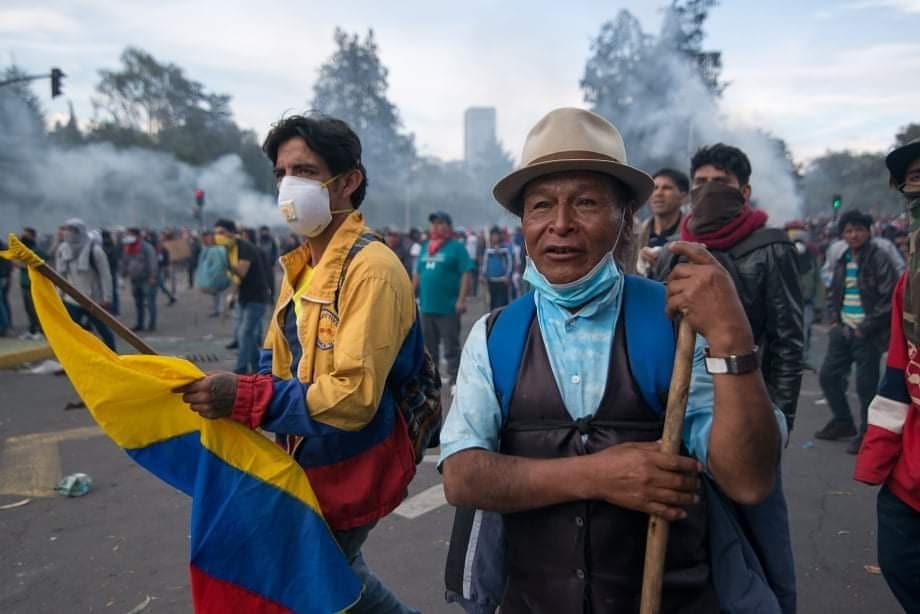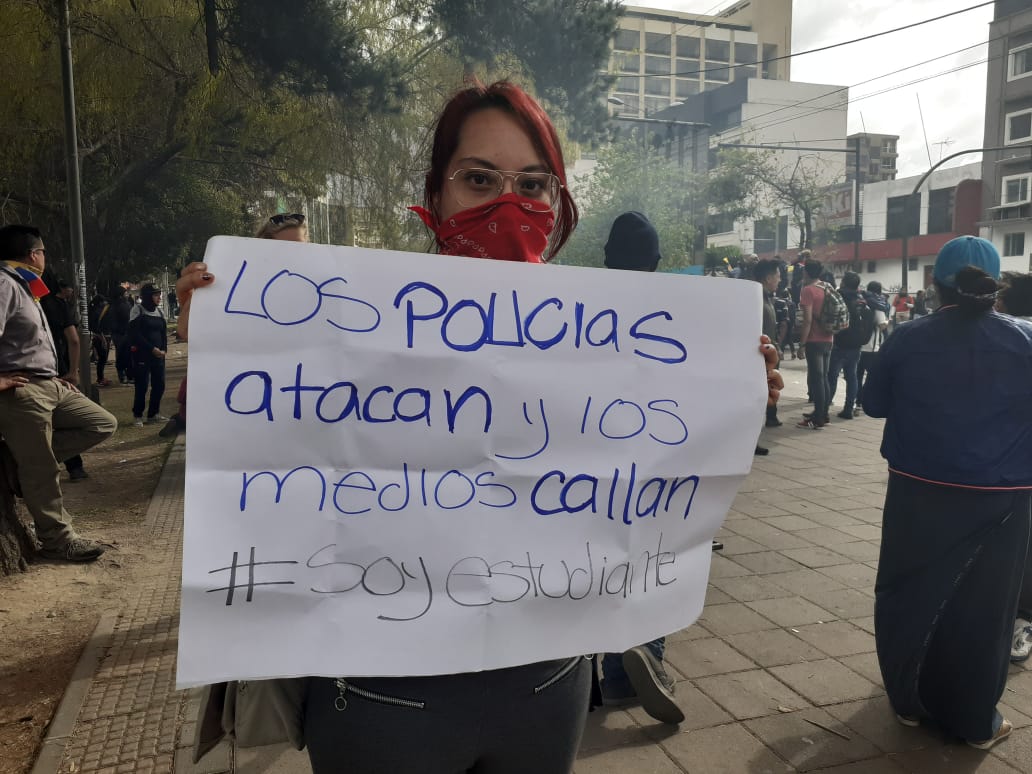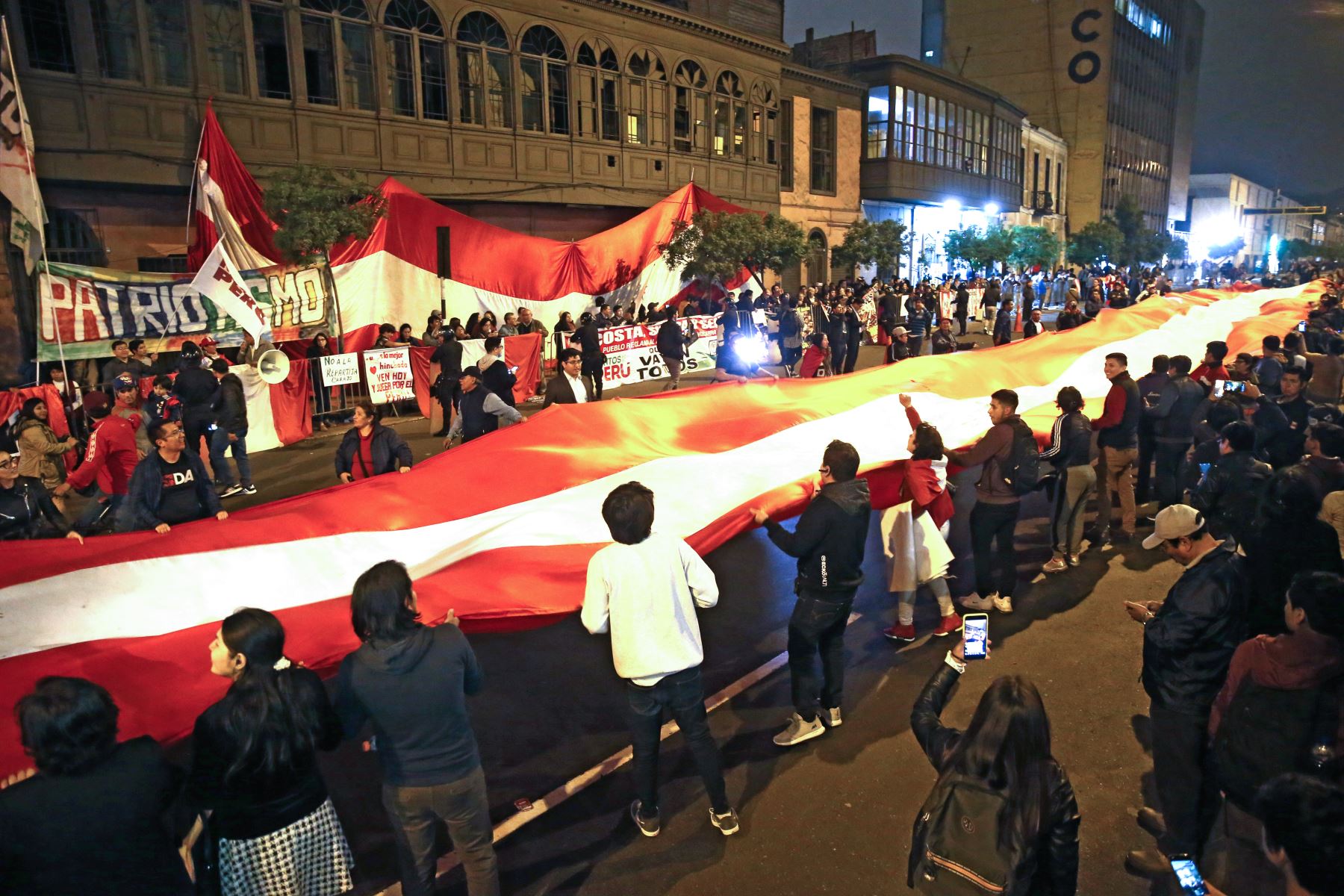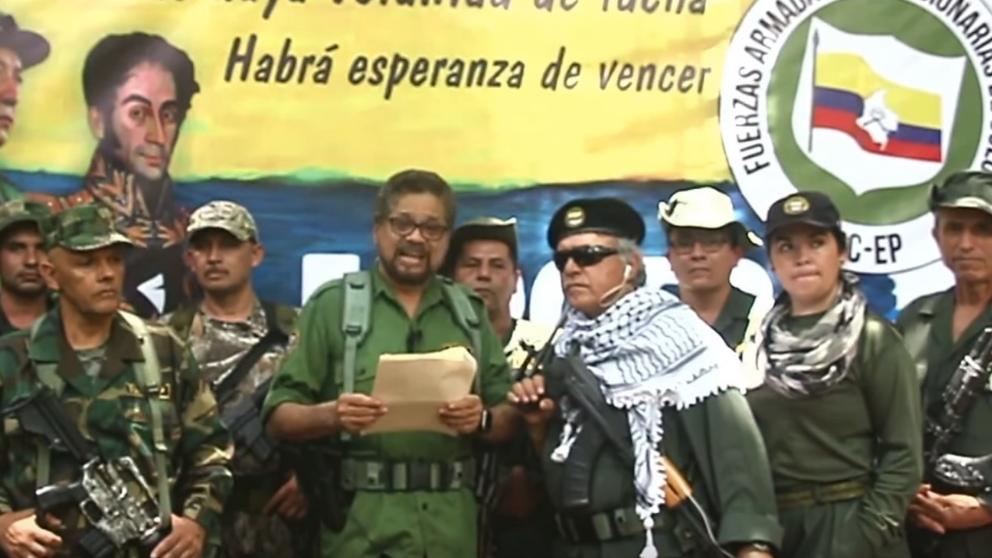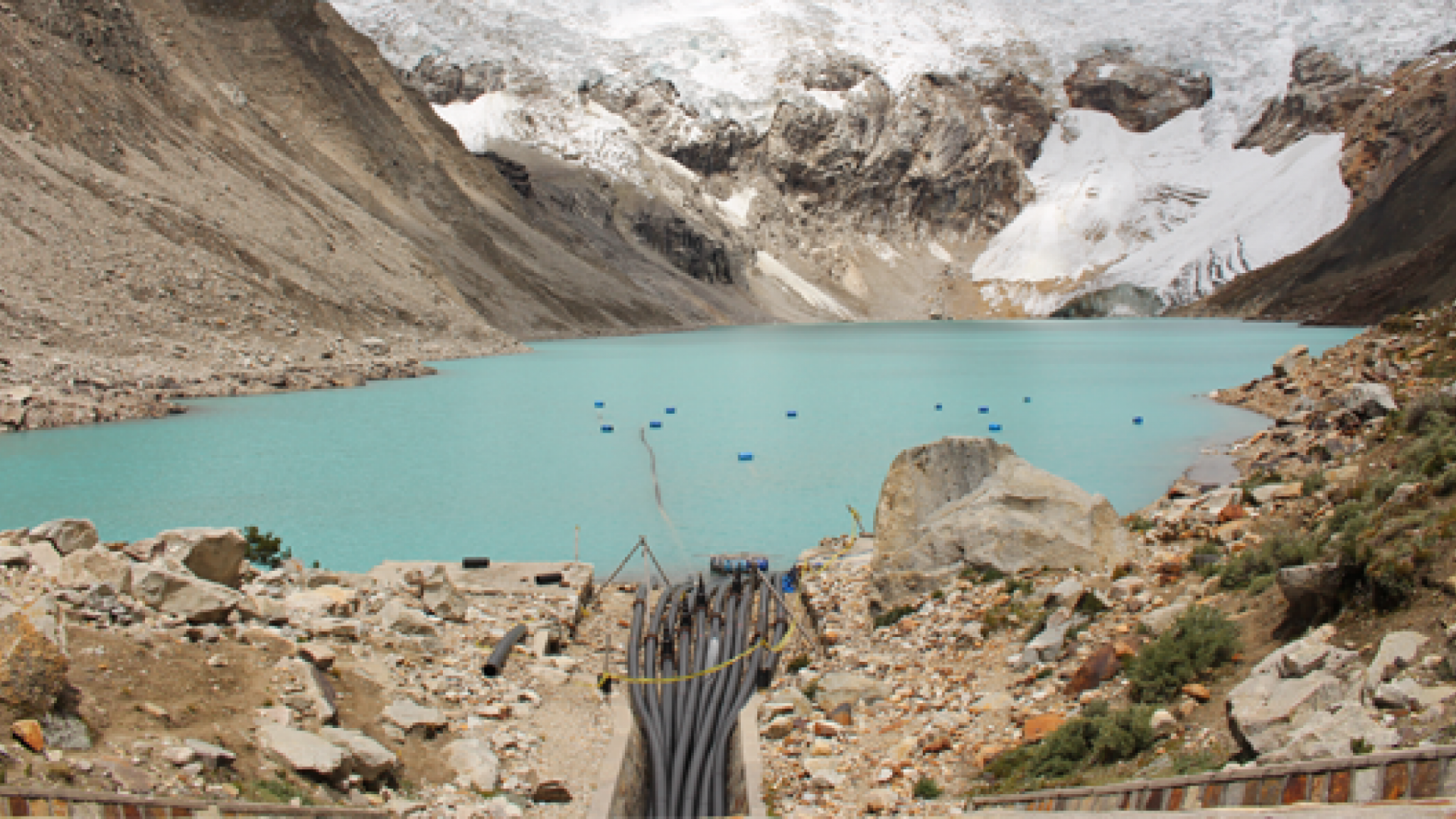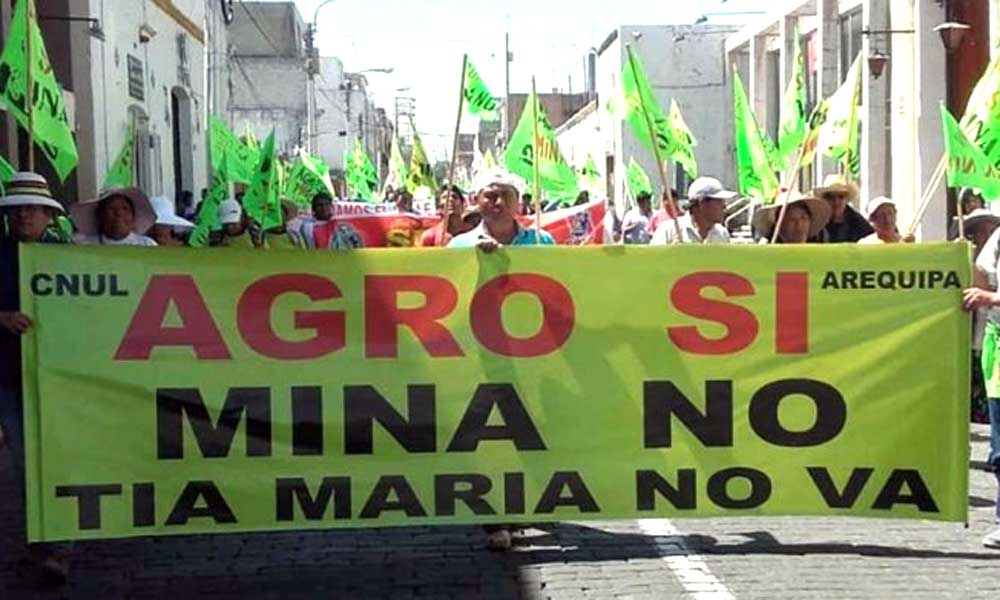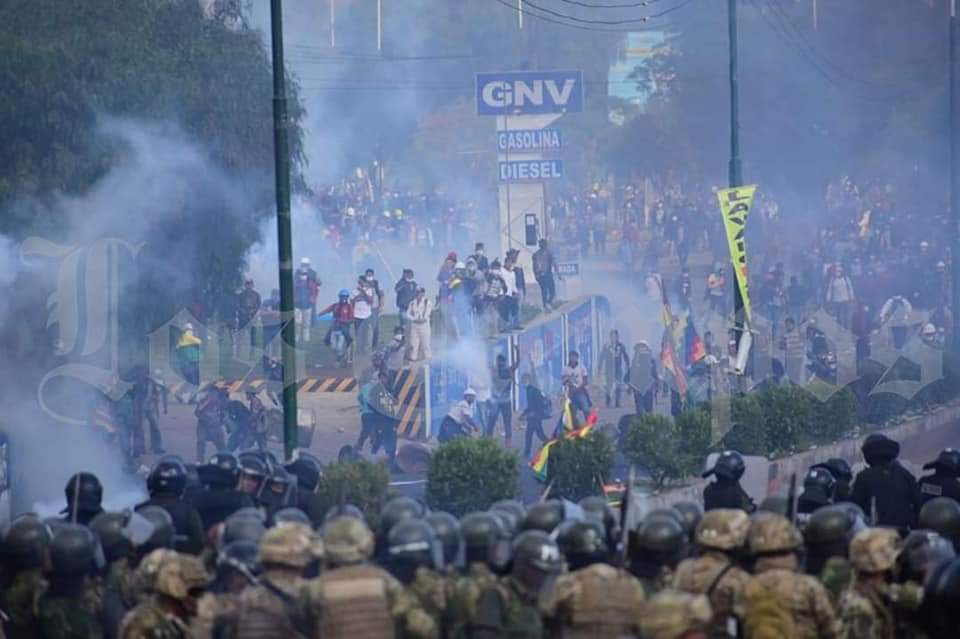
Massacre of indigenous protesters in Bolivia
Several are reported dead after National Police and army troops opened fire on indigenous demonstrators marching on the Bolivian city of Cochabamba. A march demanding the reinstatement of ousted president Evo Morales started that morning from the town of Sacaba, gateway to the Chapare region where Morales began his career as a campesino leader in the 1990s and still the heartland of his support base. When security forces attempted to block their way over a bridge, a clash ensued. The Defensoría del Pueblo, Bolivia’s official human rights office, confirmed the death of five, with 29 more injured, but local media put the death toll at nine. Some 200 were also detained. The National Police claimed on Twitter that the protesters attacked troops with “improvised firearms.” No casualties among the security forces were reported. (Image: Alba TV via Twitter)



